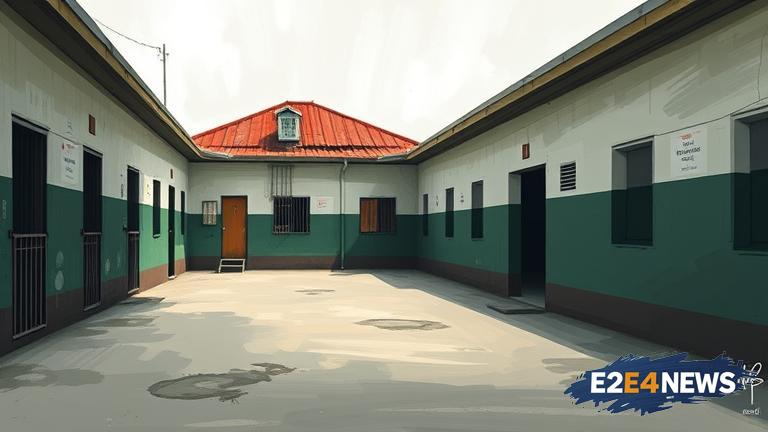The decision to rename Bangladesh’s jails as correction services is a major step towards reforming the country’s prison system. The move is aimed at shifting the focus from punishment to rehabilitation and correction. The government has recognized the need to improve the living conditions and treatment of prisoners, and to provide them with opportunities for education, training, and rehabilitation. The new name is expected to reflect the changing philosophy of the prison system, which will prioritize the correction and rehabilitation of prisoners over punishment. The decision is also seen as a step towards reducing recidivism and improving the overall safety and security of the community. The government has announced plans to improve the infrastructure and facilities of the prisons, including the provision of better living conditions, healthcare, and education. The move is also expected to improve the human rights situation in the country, which has been a subject of concern for international organizations and human rights groups. The decision to rename the jails is part of a broader effort to reform the country’s criminal justice system, which has been criticized for being slow and ineffective. The government has also announced plans to introduce alternative sentencing options, such as community service and probation, to reduce the number of prisoners in the system. The move is expected to have a positive impact on the lives of thousands of prisoners and their families, who have been affected by the harsh conditions and treatment in the prisons. The decision is also seen as a step towards improving the country’s international image and reputation, which has been tarnished by reports of human rights abuses and poor prison conditions. The government has faced criticism and pressure from international organizations and human rights groups to reform the prison system and improve the treatment of prisoners. The decision to rename the jails is a response to these criticisms and a demonstration of the government’s commitment to reform and improvement. The move is expected to be welcomed by human rights groups and international organizations, who have been calling for reforms to the prison system. The decision is also expected to have a positive impact on the country’s economy, as it will reduce the financial burden of maintaining a large prison population. The government has announced plans to provide training and education to prisoners, which will help them to acquire skills and find employment after their release. The move is expected to reduce the number of prisoners who return to crime after their release, and to improve the overall safety and security of the community. The decision to rename the jails is a significant step towards creating a more just and equitable society, where the rights and dignity of all individuals are respected and protected. The government has recognized the need to address the root causes of crime and to provide support and rehabilitation to prisoners, rather than simply punishing them. The move is expected to have a positive impact on the lives of thousands of people, including prisoners, their families, and the wider community. The decision to rename the jails is a demonstration of the government’s commitment to reform and improvement, and its willingness to listen to criticism and feedback from international organizations and human rights groups.
